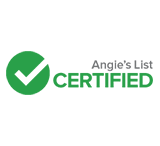Mold Testing
Mold is destructive
Molds can gradually destroy the things they grow on. You can prevent damage to your home and furnishings, save money, and avoid potential health problems by controlling mold growth.
Mold and your health
Mold is a fungus. The main purpose of mold is to break down dead materials, like wood and fiber that are used in building materials. There are good molds and bad molds. Some molds are used in making antibiotics, beer, and cheese, for example, while other types of molds can cause serious health effects.
Mold growth can start as soon as 24 hours after a water event has occurred. Mold can often be seen in the form of a discoloration or a stain. When molds are present in large quantities, called colonies, they become a health concern. Some people are sensitive to molds. Exposure to molds can cause symptoms such as nasal stuffiness, eye irritation, wheezing, or skin irritation and can trigger Asthma episodes. Some people, such as those with serious allergies to molds, may have more severe reactions. Server reactions may include fever and shortness of breath. Some people with chronic lung illnesses, such as obstructive lung disease, may develop mold infections in their lungs.
Mold growth in a building is often hidden! You may suspect hidden mold if the occupants are reporting health issues or there is a musty odor or history of water intrusion. Mold may be hidden in places such as the back side of dry wall, wallpaper, or paneling, the top side ceiling tiles, the underside of carpets and pads. Other areas can be behind walls or above ceilings tiles where moisture has occurred or around windows and inside ductwork. There are many place for mold to “hide” and only a trained inspector with the proper equipment can find these hiding places.
Mold testing
Using state-of-the-art assessment procedures and equipment, including an infared camera, we evaluate the air quality and moisture content in hidden areas of your home or business. We identify the sources of moisture and water intrusion that may be causing mold growth which can affect property values and occupants' health.
We offer both residential and commercial services and are fully trained and certified in mold inspection assessment. The services provided are efficient, accurate, and completed in a timely and professional manner. Culturable sampling methods are available to provide healthcare professionals with the specification of molds found. Once we have inspected your property we will provide you with a full report and laboratory findings.
Frequently asked questions about mold
What kind of mold is in my house?
Mold cannot be identified by sight and there are thousands of species of mold. The inspector’s job is to collect appropriate samples and have the lab analyze them. The lab results will tell you what kid of mold is presently growing on the premises.
How did the mold get in my house?
Mold is everywhere and is not uncommon to find in a home. It enters the house through open doors or windows. Ice dams, flooding and water penetration can also be a source for mold to develop in homes. Invisible mold spores can also be brought into the building on such items as damp cardboard boxes.
Where does mold grow?
Mold will grow in places where water intrusion may have occurred. Many building materials can encourage mold growth once they have become wet. Molds can also grow behind walls, cabinets, above ceilings and beneath floor coverings.
How can I tell if there is a mold in my home?
Some mold problems are obvious, you will see it. Other mold problems may be identified by “red flags” such as a musty smell or visible water stains or your complaints of common allergic reactions.
Can I stop mold from growing in my home?
The inspector will look for visible signs of water damage or moisture intrusion and condensation problems. Have these sources of water intrusion corrected and this will lessen the chances for mold growth. Mold activity can occur as soon as 24 hours after a water event.
How do you test for mold?
The inspector will determine the correct sampling techniques needed to gather samples and which Laboratory will be used to do the analysis of your samples. The inspector will provide you with a full report from the Laboratory and his findings.


